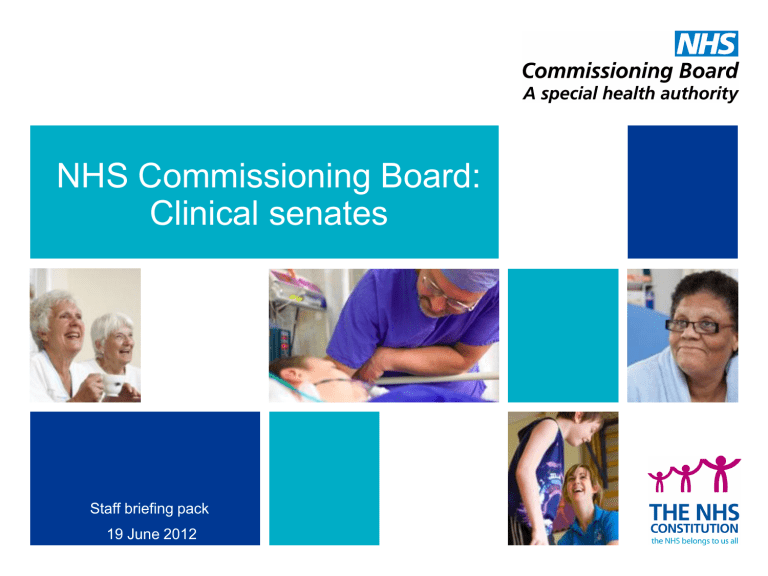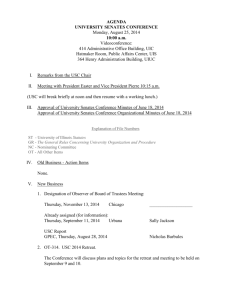Clinical senates

NHS Commissioning Board:
Clinical senates
Staff briefing pack
19 June 2012
Background
• Clinical senates will help Clinical Commissioning Groups (CCGs), Health and
Wellbeing Boards (HWBs) and the NHS CB to make the best decisions about healthcare for the populations they represent by providing advice and leadership at a strategic level.
• Dr Kathy Mclean has been working with SHA Cluster Medical and Nursing
Directors, clinical leaders locally and the NHS CB’s Regional Directors to determine the most appropriate number and coverage of clinical senates. As a result of this work it has now been confirmed that there will be a total of 12 senates.
2 NHS | Clinical senates briefing | 19 June 2012
Establishing Clinical Senates
• The detail of who will be part of clinical senates, and the roles they may have will be shared for discussion over the next few weeks.
• They will be made up of a range of clinicians and professionals from health, including public health and social care alongside patients, public and others, as appropriate.
• The NHS Commissioning Board is working with clinicians and stakeholders on the exact makeup of clinical senates, and there will be opportunities for engagement and co-production within this work.
• Further details will be circulated in the coming weeks
• Details will also be shared shortly on the future arrangements for clinical networks
3 NHS | Clinical senates briefing | 19 June 2012
4
Clinical senates map
Greater
Manchester,
Lancashire and south Cumbria
Cheshire &
Mersey
Thames
Valley
West
Midlands
South West
Wessex
North East, north Cumbria, and the Hambleton &
Richmondshire districts of
North Yorks
Yorkshire &
The Humber
East
Midlands
East of
England
South East
Coast
London
Geographical Alignment
• A key principle of the design work for both LATs and clinical senates has been that there should be alignment of boundaries between structures wherever relationships are important.
• The 27 local area teams have boundaries largely aligned within those of the clinical senates. There are only three areas where the senate boundaries cut across those of the local area teams. This has been necessary to ensure that the senate boundaries recognise the pattern of patient flows, particularly with tertiary centres.
• Similarly, close alignment has been sought between the NHS CB’s specialised commissioning arrangements and the clinical senates. As a result, the boundaries of the 10 specialised commissioning hubs will be aligned entirely with the 12 senates.
5 NHS | Clinical senates briefing | 19 June 2012








